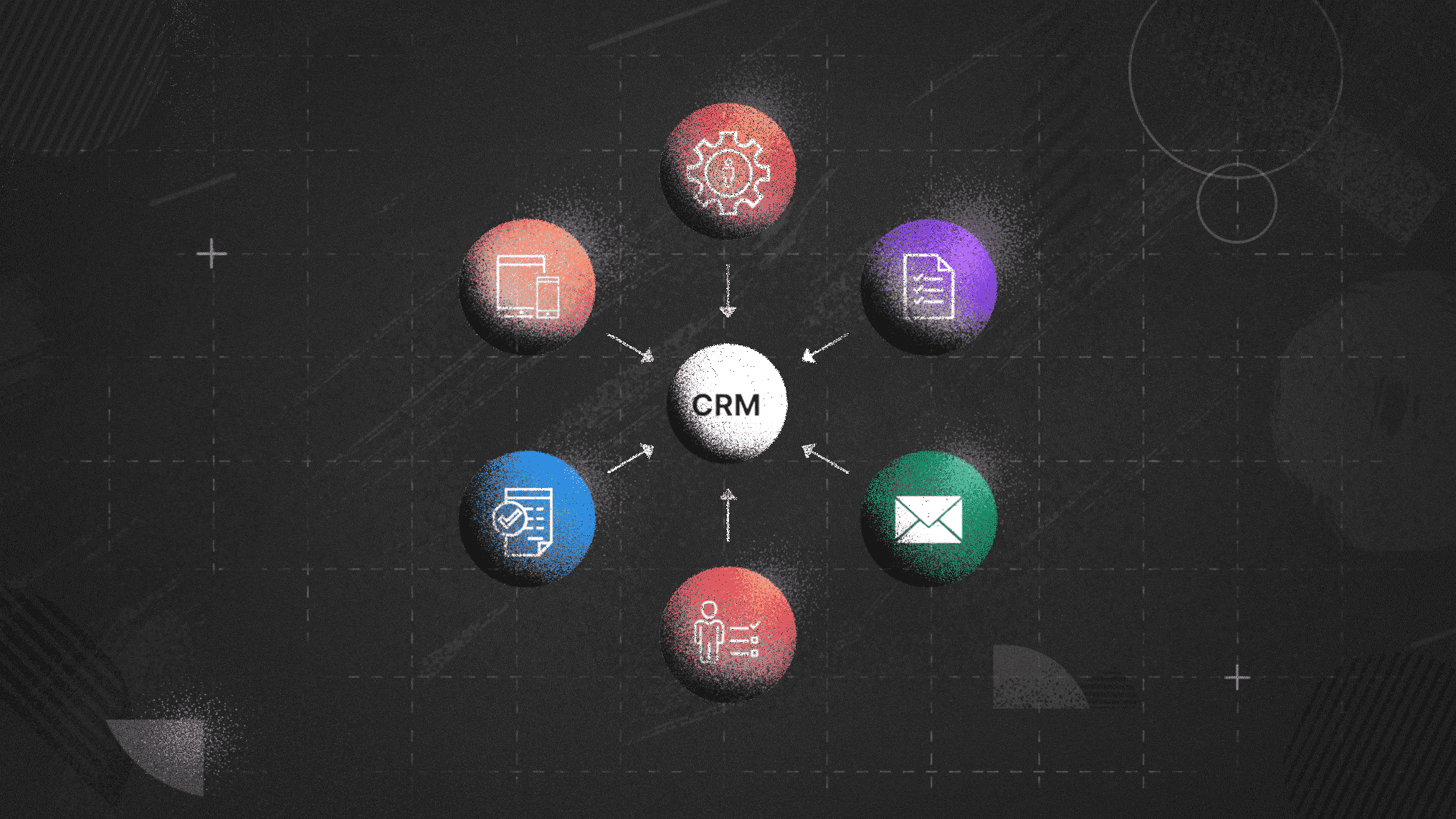Customer Relationship Management (CRM) is an essential part of any business that aims to succeed in the long run. The world of CRM software is undergoing exciting changes. As technology continues to evolve, CRM software has become more advanced, allowing businesses to streamline their operations and improve customer experiences. With a focus on aligning customer support, sales, and marketing teams, CRM is entering a new era of innovation. By making collaboration, communication, and data sharing easier, CRM has the potential to transform customer experiences for the better.
Nowadays, customers expect personalized and prompt service from companies, which has led to an increased reliance on CRM tools by sales, marketing, customer service, and management teams. The CRM software market has also seen an increase in market share in recent years, with an estimated value of $46.2 billion in the US market in 2023. As CRM software has evolved, it has become more intelligent, integrated, and automated. It is now possible to segment audiences, generate insights, and integrate with multiple tools from a single dashboard. In this document, we will discuss some of the most exciting CRM innovations and trends to watch in 2024.
Why use Customer Relationship Management (CRM) tools?
Customer Relationship Management (CRM) tools have come a long way from their traditional sales and marketing functionalities. Today, they have evolved to incorporate the entire tech stack, allowing businesses to streamline their operations and improve customer experiences. With the help of APIs, CRM capabilities can be further expanded, allowing for custom workflows and processes to make using the systems easier. In the current business world, aligning all departments can be a significant challenge, as each team often has its own long-term goals, KPIs, and data access levels.
This makes it difficult to get everyone on the same page, and many companies use multiple apps that are often poorly connected or not connected at all. However, by using a unified CRM, businesses can optimize data collection, integrate data sources, and improve decision-making. A CRM acts as a single source of truth, simplifying the sales technology stack, creating more data transparency, and aligning marketing, sales, and customer service. As CRMs continue to evolve and connect all teams, tools, and data sources, they will increasingly act as a single source of truth for businesses.
Personalization has become increasingly important because of evolving consumer expectations. Hyper-personalization, which uses real-time data to create relevant experiences for individual customers based on signals like user behavior, has become the new norm. CRM platforms already allow some personalization, but future CRM tools will be advanced enough to provide more personalized notifications, reminders, and promotional offers.
For example, IBM Watson Advertising Weather Targeting uses AI to predict how the weather impacts a customer’s buying decisions and provide real-time personalized advertisements. Future CRM software could include emotionally intelligent messaging and location-specific selling to increase personalization capabilities and build deeper connections and loyalty with customers.
CRM tools have evolved beyond their traditional functions, and APIs will continue to expand their capabilities. By using a unified CRM, businesses can simplify their sales technology stack, create more data transparency, and align marketing, sales, and customer service. Hyper-personalization has become increasingly important, and future CRM software will provide more personalized notifications, reminders, and promotional offers. These advancements will help businesses build deeper connections and loyalty with customers, ultimately resulting in higher sales and revenue. Visit Pipeliner today to see if we fulfill these criteria for you.
Self-Service
Today’s consumers have high expectations when it comes to self-service options. This includes detailed knowledge bases, searchable FAQs, and conversational chatbots. These features allow customers to solve problems and learn about products or services without the need to contact customer support. According to a survey by NICE, 81% of consumers expect more self-service options, while 60% of businesses admit they need to improve their offerings. To meet these expectations, CRM systems will integrate with self-service options, using data collected from customer actions to better understand their needs.
For example, if a customer searches for information in a knowledge base, a record of that action will be stored in the CRM, allowing customer service agents to access a detailed history of the customer’s interactions. Chatbots can also provide personalized suggestions and answer questions, with sales, marketing, and customer service teams able to see a contact’s chat history and use those insights to provide a better customer experience.
NatWest‘s digital assistant, Cora, is an example of this type of technology outside the world of CRM, allowing users to ask for help and guidance in understanding the service. Cora is a digital assistant that can help users with tasks such as stopping cheques, closing accounts, and updating account details. To keep up with this trend, businesses can provide a self-service portal that offers a knowledge base, community forums, video tutorials, and an AI chatbot. Using a CRM system that taps into the self-service portal can generate customer insights. Additionally, enabling centralized communications can ensure a detailed history of interactions, regardless of which channel the customer contacted the business through.
Artificial Intelligence (AI)
Artificial intelligence has been a buzzword in the tech industry for years, and it’s no surprise that it’s making its way into CRM software. AI-powered CRM systems can help businesses automate tasks, analyze customer data, and personalize interactions. With AI, businesses can create more accurate customer profiles, predict customer behavior, and provide personalized recommendations to customers based on their preferences. Artificial intelligence (AI) is being integrated into CRM software to automate tasks, analyze customer data, and personalize interactions.
AI can help businesses create more accurate customer profiles, predict customer behavior, and provide personalized recommendations to customers based on their preferences. AI-powered CRM solutions can improve business operations by monitoring future trends, forecasting sales, making data-driven decisions, allocating resources effectively, automating workflows, determining how customers perceive brands, providing 24/7 customer support, and predicting customer outcomes. With AI, CRM interfaces can become smarter and more accessible, and future CRM technology may be able to recommend the next best action for each customer based on past interactions.
Voice-activated CRM
Voice assistants like Siri and Alexa have become an integral part of our daily lives, and voice-activated CRM systems are not far behind. Recent studies have shown that voice-activated CRM is gaining popularity among businesses due to its many benefits. With this technology, businesses can provide their sales teams with hands-free access to customer data, allowing them to focus on building strong and lasting relationships with customers rather than entering data into a system. This not only saves time but also increases productivity and efficiency, ultimately leading to higher sales and revenue.
Moreover, voice-activated CRM can also be used to automate various tasks, such as scheduling appointments and sending follow-up emails. This means that sales representatives can spend more time engaging with customers and less time on administrative tasks. By freeing up valuable time, sales representatives can focus on nurturing customer relationships, understanding their needs and preferences, and providing personalized solutions. This, in turn, can lead to increased customer loyalty and retention. Voice-activated CRM provides real-time insights and analytics, enabling businesses to make data-driven decisions and adapt their strategies. This technology streamlines processes, increases productivity, and improves the customer experience, making it essential for businesses of all sizes in 2024.
Mobile CRM
Mobile CRM, or Customer Relationship Management, has been in use for quite some time and is expected to become even more popular in 2024. What sets mobile CRM apart from traditional CRM is that it allows businesses to provide their sales teams with access to customer data and sales reports on the go – anytime and anywhere. This is particularly useful for sales teams that need to be on the move frequently. With the ability to access customer information and sales reports in real-time, sales teams can make timely decisions and take quick actions, thereby increasing the overall efficiency of the sales process.
Moreover, mobile CRM also allows sales teams to update customer information and enter data into the CRM system in real-time. This ensures that the customer profiles are up-to-date and accurate, which in turn helps businesses to better understand their customers and provide them with personalized service. Real-time data entry also ensures that sales reports are accurate and reliable, which is crucial for businesses to make informed decisions and forecast future sales. Mobile CRM can integrate with email, social media, and instant messaging, improving communication and customer service. It streamlines the sales process and boosts sales, making it a powerful tool for businesses to stay competitive and increase loyalty.
Social CRM
Customer relationship management is changing rapidly, with a greater focus on providing positive experiences for customers. In fact, studies show that 73% of customers consider their experience when making purchasing decisions. To achieve this, businesses must prioritize the customer’s perspective. This is why CRM experience, or using CRM to provide the best possible experience at every touchpoint, is becoming increasingly important. To achieve customer-centric goals, businesses must put customer needs first, measure interactions, and anticipate pain points. One way to achieve this is by integrating CRM tools with social media channels like Facebook, Instagram, and LinkedIn.
Social CRM allows businesses to monitor social media channels, track customer conversations, and respond to customer inquiries and complaints in real-time. With social CRM, businesses can build stronger relationships with customers and improve their brand reputation. By responding quickly to comments and connecting with customers via social messaging apps, businesses can build stronger relationships and incorporate user feedback into their product development roadmap more easily.
Conclusion
In conclusion, the world of CRM is rapidly evolving, and businesses that want to stay competitive must keep up with the latest innovations and trends. With the rise of AI, mobile, and voice-activated CRM, businesses can streamline their operations, improve customer experiences, and boost revenue. By integrating CRM systems with self-service options and social media channels, businesses can provide personalized service, build stronger relationships with customers, and improve their brand reputation. With a focus on collaboration, communication, and data sharing, the future of CRM is bright, and businesses that adopt these new technologies and trends will be well-positioned for success in 2024 and beyond.

